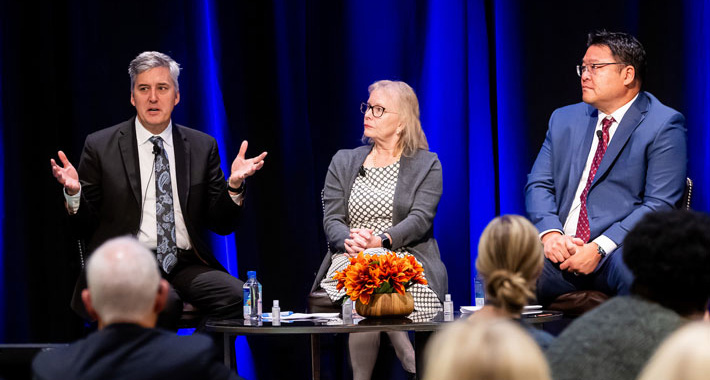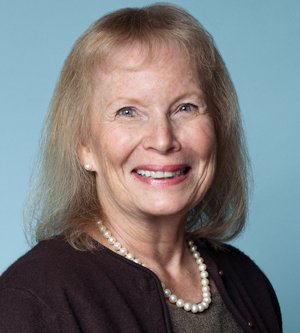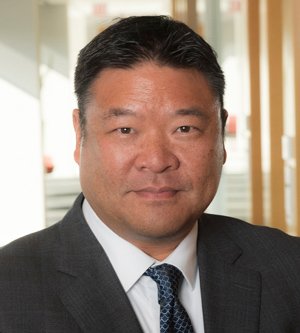
Practicing medicine in America has become complicated as physicians face attacks from outside, and inside, of the profession about their integrity, evidence-based medicine, and authority to self-regulate. That was the message from the opening plenary speakers at ABMS Conference 2023 held this past September.
Medical professionalism faces attacks

These attacks go to the core of medical professionalism, noted Matthew Wynia, MD, MPH, FACP, Director of the Center for Bioethics and Humanities at the University of Colorado, Anschutz Medical Campus.
“Medical professionalism is a set of beliefs about the social roles and responsibilities of medical professionals as a group,” Dr. Wynia said. It allows members of the public to trust physicians and make assumptions about their competence and ethics. Society has deemed it a good idea to give groups of people with defined training and expertise, as well as shared values, the privilege and obligation of self-regulation to uphold these standards across the group.
Setting scientific and ethical standards, and maintaining them, is a complex task that is carried out across time and in conversation with the communities served, he explained. Getting them wrong can have tragic consequences, Dr. Wynia stated, citing the promulgation of medical racism and eugenics. “We have to own the enormous harm that has been caused by such wrong beliefs,” he said.
“But we get a lot of things right,” Dr. Wynia continued. “The COVID-19 pandemic showed the world that we show up, even when our work is dangerous.” Both past errors and the pandemic have emphasized the medical profession’s ethical role of protecting human rights and standing up for the most vulnerable, and not becoming agents of a malicious state. “COVID-19 also taught us that sometimes we have to fight, protect, and defend what we got right,” he stated. For those things that the medical profession may have gotten wrong related to COVID-19, it’s important to remember that science evolves and ethics are created through constant dialogue. “Discerning what we should fight to defend and what we should be humble enough to change requires balancing courage and humility,” he said, adding, “This is a fundamental challenge for our profession.”
Dr. Wynia cited other challenges facing physicians today and the questions they raise about medical professionalism. Explicit attacks coming from external forces are questioning the medical profession’s authority to set practice standards for reproductive health care and gender-affirming health care, as well as COVID-19 treatment protocols, vaccinations, and masking recommendations. These attacks reflect a mistrust of physicians as a group of professionals and professionalism as an ideal way of delivering medical care. Legislators, governors, attorneys general, district attorneys, and even some fraction of the public, have raised concerns about physicians’ motives, integrity, and commitment to science and core values. “When a resulting law sets a new practice standard contrary to ours, especially when it requires physicians to cooperate in harming our patients, what should we do?” he asked. Is it okay to disobey laws if they are contrary to professional standards? Is a large-scale protest justified? And if so, why isn’t it already happening?
Challenges coming from within the group are forcing the profession to better define the “fuzzy space” between a professional belief grounded in core values and personal or political beliefs, Dr. Wynia said. “We count on colleagues to question conventional wisdom,” he added. “That’s how science moves forward.” But what does a profession do when some members sincerely believe something works that doesn’t? How much harm can the profession allow before a member is sanctioned for acting on sincerely held, but false, beliefs?
Finally, the medical profession is being challenged to defend the rights of pregnant women and people experiencing gender dysphoria to consult with their doctors freely and openly, and then make a decision about their medical care. Some would say that is being overly political because they believe that prioritizing patient-centered care is a social or political choice, not a core value of the profession, Dr. Wynia said. “But if we agree, as a group, that patient-centered care is a core value of our profession, then we should defend it. I invite you to join together in defending that value both among our colleagues and across society,” he concluded.
ABOG counters legislative attacks on reproductive health care

After providing an historical perspective of reproductive health care, Susan M. Ramin, MD, Associate Executive Director of Maintenance of Certification at the American Board of Obstetrics and Gynecology (ABOG), reviewed the three most important legislative actions that have impacted obstetrician/gynecologists’ (ob/gyns) ability to provide quality, comprehensive reproductive health for their patients. In 1973, the decision in Roe v. Wade protected abortion rights. In 2021, the Texas Heartbeat Act banned abortion at six weeks and subjects anyone who performs the procedure to criminal charges. In 2022, the Dobbs v. Jackson decision overturned Roe v. Wade, allowing states the right to decide abortion laws. Between 1973 and 2022, the United States Supreme Court has issued 23 decisions on abortion. The legislature in Texas, where ABOG is based, has taken multiple legislative actions. The Dobbs v. Jackson decision unleashed trigger laws allowing the state to revert to decisions made in the 1800s, she said. As of September 2023, more than half of states have some degree of restriction on abortion.
The Dobbs v. Jackson decision put constraints on reproductive health and abortion rights care and access, Dr. Ramin elaborated. It has caused widespread personal and professional disruption in ob/gyn practices and created confusion around the interpretation of new laws. Current state laws and trigger laws can have a potential effect on training, certification, practice, and continuing certification, she said. The next round of new laws may impose more restrictions on practice and access to essential care.
In response, ABOG has had to clarify the certification standards for its subspecialty Complex Family Planning to all residents and fellows. The board has also conducted numerous webinars with candidates to alleviate or address concerns about state laws and certification.
ABOG surveyed residents from the 2022–2023 academic year to gauge their educational experience regarding reproductive health in light of recent legislative actions. The majority of respondents were very confident they would be able to perform induced medication or surgical abortions. Most respondents received the appropriate training in family planning. Approximately half, however, were not likely to pursue practice in a state with restrictive abortion policies.
Among the recent statements released by ABOG were those reiterating the board’s support for ob/gyns and reproductive health rights for patients, and the serious health effects of the persistent spread of misinformation* and disinformation†, especially regarding COVID-19. ABOG also published evidence that knowledge, judgment, and skills in reproductive health care and abortion are essential to providing comprehensive care to women.
While recent legislative actions have added to the complexity of providing comprehensive reproductive health care, Dr. Ramin concluded, ABOG continues to obtain input from the ob/gyn community, including through its job task analysis that defines the essential practice elements of ob/gyns, and is committed to meeting the needs of ob/gyns practicing in the current complicated environment.
AMA tackles challenges through policy

Frederick Chen, MD, MPH, Chief Health and Science Officer of the American Medical Association (AMA), shared how the organization is supporting members in this increasingly hostile environment in which to practice medicine through its policy and advocacy efforts.
The AMA House of Delegates, which meets twice a year, is the platform AMA uses to set policy. There, policy is openly debated and voted on by more than 690 delegates representing nearly 200 state and specialty societies. The organization was founded in 1847, in part, to establish the first national code of medical ethics, Dr. Chen said. The Council on Ethical and Judicial Affairs maintains and updates the AMA Code of Ethics and promotes adherence to the standards of professional ethics detailed in the Code.
Lately, AMA has been tackling misinformation, which not only spreads distrust of the profession and leads to acts of intimidation related to anti-science aggression but has serious consequences for patient care. “Although misinformation was heightened during the pandemic, we continue to see it with transgender rights and threats against hospitals and physician groups,” Dr. Chen noted. AMA has been dispelling quackery and snake oil purveyors in medicine since its inception, so this is not the first time the organization has had to combat misinformation. “We believe that physician leaders have an obligation to push back against medical misinformation and advocate for science and evidence,” he added.
AMA combats medical misinformation by providing only evidence-based and scientific information, addressing disinformation disseminated by health professionals via social and media platforms, calling out the monetization of spreading disinformation, and educating health professionals and the public how to recognize disinformation. The organization also ensures that specialty and licensing boards have the authority to take disciplinary action against health professionals for spreading misinformation, and encourages state and local medical societies to engage in dispelling disinformation in their jurisdictions.
Dr. Chen said that these attacks from outside forces are being played out in the courts and examining rooms across the country. Anti-science laws are increasing across the states, he noted. While 22 states now ban or partially restrict a patient’s access to abortion; 14 states have enacted “abortion reversal” laws that require physicians to give medically inaccurate information to patients; and at least 20 states have banned/severely restricted transition care for transgender minors.
At the federal level, the AMA’s Litigation Center defended patient and physician autonomy in an amicus brief in Dobbs v. Jackson, protected access to mifepristone across the country, and urged the Supreme Court to uphold firearm prohibitions on domestic violence abusers who are subjects of restraining orders. At the state level, AMA fought to uphold common-sense gun laws in New York, supported the Wisconsin Supreme Court decision to prevent third parties from dictating patient care above a doctor’s direction and established medical consensus, and joined the California Medical Association in support of the state’s law prohibiting the use of the term “doctor” by anyone without a medical degree.
The effect on the medical profession is a rising burnout rate, he said. To combat that, AMA is elevating the mental health needs of physicians and helping to remove the stigma from mental health concerns. It has worked with organizations around confidentiality of physician health programs and disclosure of past impairment for purposes of licensing/credentialing. The organization has also supported the passage of the Dr. Lorna Breen Health Care Provider Protection Act.
Dr. Chen encouraged attendees to think about these issues not only from a policy perspective but from the perspective of individual physicians. “What is our role as national organizations, professional boards, and societies in supporting the profession?” he asked.
* Misinformation is false information shared by people who do not intend to mislead others, as defined by the Centers for Disease Control and Prevention.
† Disinformation is false information deliberately created and disseminated with malicious intent.
-
Read More:
- Professionalism |
- ABMS Conference |
- Public Health |
